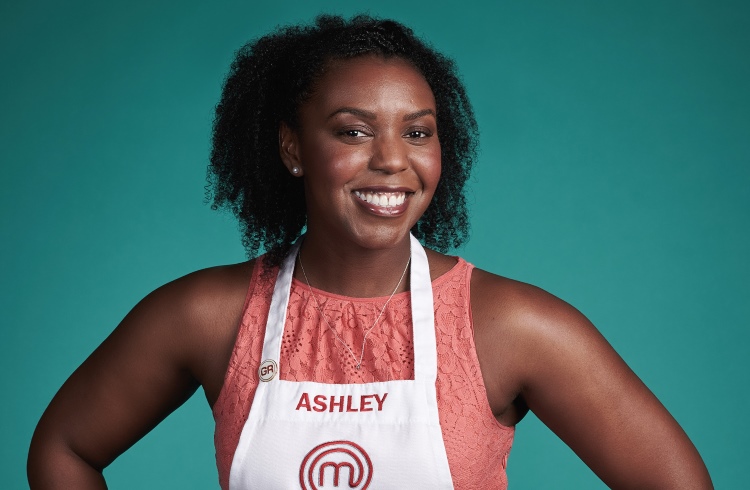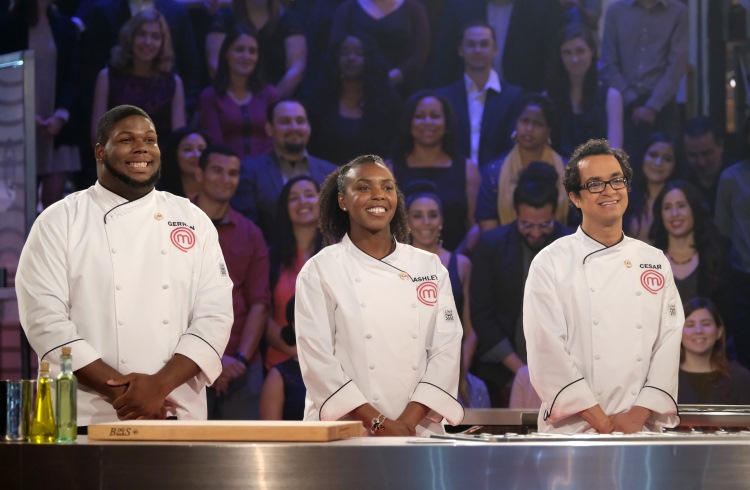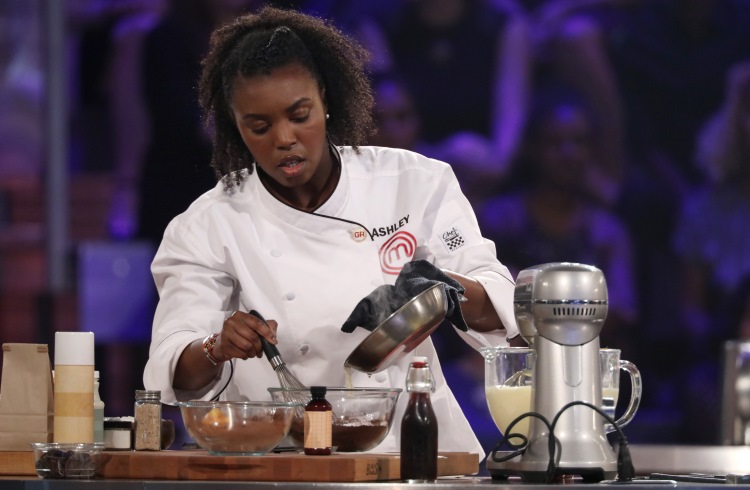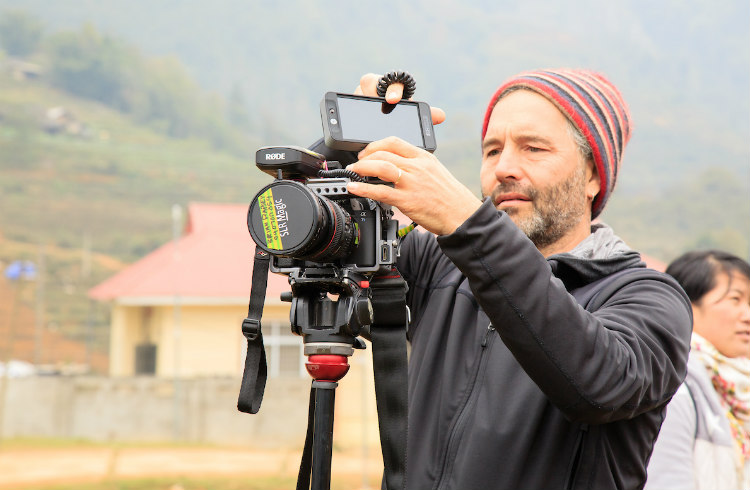An Interview With MasterChef Finalist Ashley Mincey
Shortlisted for our 2016 Passport & Plate Scholarship, Ashley shares her journey to one of the world’s biggest cooking competitions.
 Photo © FOX
Photo © FOX
The Season 9 finale of MasterChef US aired on September 19, with three home chefs battling it out for the prize. One of those chefs was Ashley Mincey, a Top 25 finalist in the World Nomads 2016 Passport & Plate scholarship. Wearing the apron given to her by her mentor Gordon Ramsay, she put together an ambitious, elegant menu that mixed her Southern roots – she’s a Florida native – with French cuisine inspired by her time in France.
We spoke with Ashley a few days before her MasterChef finale. She shared how world travel has influenced her as a chef, and how the Passport & Plate scholarship was an important step on her road to the MasterChef competition.
How did you get started as a cook?
I got started in a traditional way, through my grandparents. My grandmother cooked every day, never skipped a day. I was there to help with whatever she needed me to do, and I was just always in the kitchen. I was really thrown into a lot of different aspects: she did savory and sweet, and kept a garden – it was wonderful to grow up like that.
When I went to college, I discovered I loved cooking for other people. My friends learned that I could cook, and they kept asking me to make them dishes.
So it was two separate things – cooking with family and cooking for others.
What inspired you to apply for the World Nomads Passport & Plate scholarship?
When I was teaching [high-school French] full-time, I needed something to relieve my stress and be my therapy, so I dove into cooking competitively, entering recipe contests and cookoffs. After a while I wanted to amp it up, and Passport & Plate was the first international, global one I’d found online.
I connected really well with the theme. All of it resonated with how I was as French language teacher – I’d be able to share my experiences in France like I have done in the classroom, but now with food. To be able to connect all aspects of my life: travel, global awareness, food, and to get to storytell at the same time, was perfect.
How did the scholarship impact you as a chef? Do you think it helped prepare you to be a contestant on MasterChef?
I feel like we shouldn’t have to narrow our views to where we’re from. A lot of times we have to fit into a specific kind of box: what we look like, the zip code we come from. The scholarship let me celebrate something people didn’t know about me. “Wow, you traveled to France?”
It also inspired me to try different types of cuisine. There were all these recipes posted from other contestants – I was very intrigued by one that used rosewater. Seeing other entries and reading their stories inspired me to push further out of my comfort zone with other ingredients and food cultures, and put me on path to do more research. The international aisle is now one of my favorites.
Having the scholarship background also helped me be more confident in presenting my global view and culinary perspective. I wasn’t fearful of being different [on MasterChef] because I’d already had exposure, so I could go in and express myself and my global point of view through cooking, and they loved it!

What are your biggest influences as a chef?
My biggest influence – and I swear it’s not because of who my mentor is – has been the chefs I saw and revered and respected. Chef Ramsay came from a rough background, overcame a lot, and now he runs an empire. Those are my influences: chefs that are not a reflection of what other people thought they should have been. I don’t want to stay in a box, stay with one culinary point of view. Chef Ramsay highlights his English background but also his French and American experiences. That all influences my cooking style.
How has travel influenced your cooking? Have your travel experiences been helpful to you on Master Chef?
My travel experiences have been an advantage because I feel like as a competitor I was able to channel so many memories – traveling abroad where I couldn’t speak the language so I could only connect through food or spices. In France I spent the whole year studying, and took trips to Morocco, Italy, England, Spain.
On MasterChef, I would get an ingredient and would channel it back to “where have I seen this protein before, what did it smell like, what spices were used.” I got to be much faster as a result. Week by week I was able to assemble recipes more quickly.
What did you do to prepare for the MasterChef competition?
I practiced a hell of a lot before going, as much as I could. I had a flexible schedule with my job, so I took some time off to throw myself into the kitchen and just study. When I found out I had the opportunity to keep auditioning, I bought books and equipment, and practiced day in and day out.
What have been some of your biggest challenges on MasterChef?
One of the big challenges was learning to think on your feet. On the recipe-development side, in most contests, you have a deadline, but you have time to develop the best recipe possible. In this arena, when they say go, they mean go – so you need to develop your recipe and shop at same time. Usually I take as much time as I want, and let the ingredients inspire the dish. So I’ve had to get better at recipe development and time management.
As far as cooking – at first getting a new ingredient was a challenge. I wasn’t fearful but it took a little while to know how to make it the star of the dish.

What do you see yourself doing after the MasterChef is over?
No matter what happens, we’ll have opportunities to host pop-up diners and events – I’m looking forward to doing that and bringing in the travel aspect. That really is a part of me. Normally contestants stay in their home city, but I let them know: I want to be able to travel around and experience places in the US. Why stay in Miami?
Where do you hope to travel next?
I definitely want to go back to Europe – I haven’t been in 8 years. The only city I went to in Italy is Rome. I’d love to go to Florence and Venice. And also visit West African nations – I found out recently I have some heritage that ties into some of those countries, so I’d love to go there. My list is quite long. Also Toronto – I’ve heard really great things about Toronto.
Do you have any favorite Thanksgiving or holiday recipes?
My moms’ dressing/stuffing is incredible, she always has to make that. She throws down with the dressing.
Whenever I’m in Ohio for the holidays, they always ask me to make my squash casserole. It’s a spin-off of my mom’s dressing – still has the cornbread but then I roast zucchini and squash with a whole bunch of savory herbs and then I bake that in.
My family goes five generations back in Miami. That’s where the Southern, Caribbean, and Latin influences in my cooking came from. I grew up around Jamaicans, Haitians, Bahamians, Cubans, and Peruvians. My friends were an eclectic bunch of people – when I was 9 years old I thought this was normal. That’s probably where my affinity for traveling and other cultures came from – I thought every place was like this, which is why I’m such a huge advocate.
Earlier, you mentioned that the scholarship and its mantra helped you find your voice and your passion as an advocate for globalization through food. Can you tell me more about that?
I feel the scholarship really did leave an impact on me. It was the first scholarship I found that allowed me to celebrate traveling around as an American. We all like to eat, and that will lend itself to open up other ways to share our differences and similarities – to keep conversation and connection happening.
Learn more about World Nomads Travel Scholarships here.

No Comments